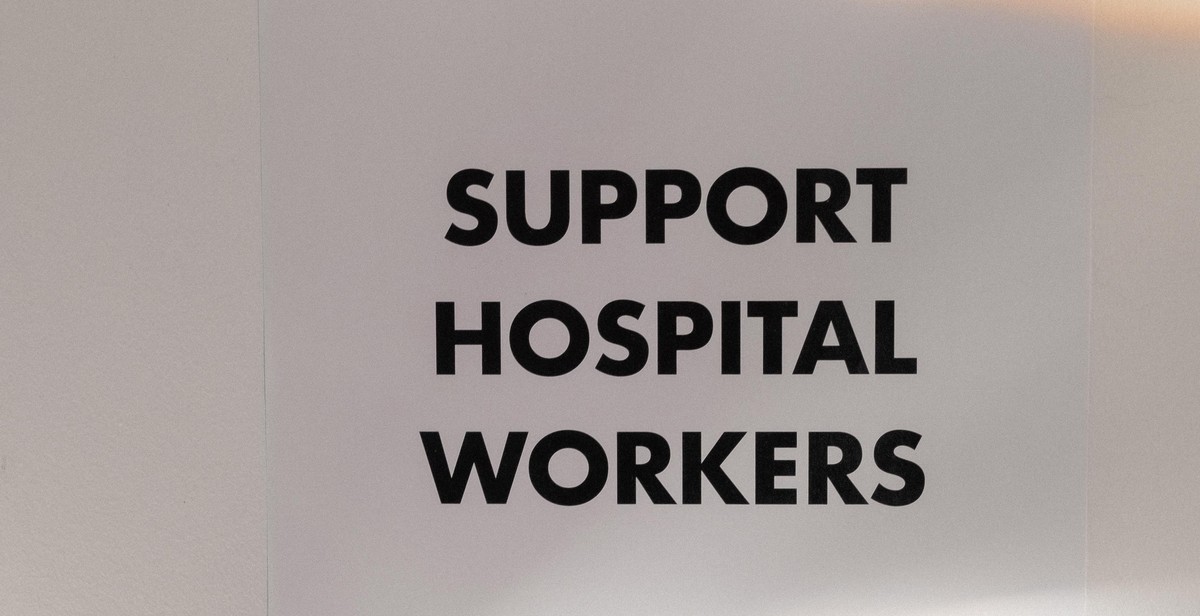How to Implement Effective Communication with Hospital Staff
Effective communication is the cornerstone of any successful hospital. It ensures that patients receive the best possible care, and that staff are able to work efficiently and effectively. However, with so many different departments and roles within a hospital, it can be challenging to ensure that communication is always clear and effective.
In this article, we will explore some of the key strategies that hospitals can use to implement effective communication with their staff. We will look at the importance of clear and concise messaging, the benefits of using technology to streamline communication, and the role of training and education in promoting effective communication.
The Importance of Clear and Concise Messaging
Clear and concise messaging is essential for effective communication in a hospital setting. This means ensuring that all staff members understand their roles and responsibilities, and that they are able to communicate important information to one another in a clear and concise manner.
One effective way to achieve clear and concise messaging is to use standardized protocols and procedures. This can help to ensure that everyone is on the same page and that communication is consistent across all departments and roles.
Using Technology to Streamline Communication
Technology can be a powerful tool for streamlining communication in a hospital setting. For example, electronic medical records can help to ensure that patient information is always up-to-date and accessible to all staff members who need it.
Other technologies, such as instant messaging and video conferencing, can also be useful for facilitating communication between staff members who are not physically located in the same place.
The Role of Training and Education
Finally, training and education are essential for promoting effective communication in a hospital setting. This includes providing staff members with the skills and knowledge they need to communicate effectively with one another, as well as with patients and their families.
Training and education can also help to promote a culture of communication within the hospital, where staff members feel comfortable sharing information and collaborating with one another to provide the best possible care for patients.
Why Effective Communication with Hospital Staff is Important
Effective communication is crucial in any healthcare setting, but it is especially important in hospitals where staff members are responsible for providing care to patients with complex medical needs. Communication breakdowns can lead to serious consequences, including medical errors, patient dissatisfaction, and even harm to patients.
Improved Patient Outcomes
One of the most compelling reasons for effective communication with hospital staff is the impact it has on patient outcomes. When hospital staff members communicate effectively, they can ensure that patients receive the right care at the right time, which can lead to faster recoveries, fewer complications, and better overall health outcomes.
For example, when nurses effectively communicate with physicians, they can ensure that medications are ordered correctly and administered on time, reducing the risk of adverse drug events. When physicians communicate effectively with patients, they can ensure that patients understand their diagnoses and treatment plans, which can lead to better adherence to medication regimens and lifestyle changes.
Efficient Workflow
Effective communication also plays a critical role in ensuring that hospital workflows run smoothly. When staff members communicate effectively, they can coordinate care more efficiently, reducing delays and backlogs that can lead to long wait times for patients.
For example, when nurses communicate effectively with each other and with physicians, they can ensure that patient care is coordinated seamlessly, reducing the risk of duplicative tests or procedures. When physicians communicate effectively with hospital administrators, they can ensure that resources are allocated appropriately, reducing waste and improving the overall efficiency of hospital operations.
Better Staff Morale
Finally, effective communication with hospital staff is important for maintaining high levels of staff morale. When staff members communicate effectively, they can build strong relationships with each other, fostering a sense of teamwork and collaboration that can improve job satisfaction and reduce burnout.
For example, when nurses communicate effectively with each other and with physicians, they can develop a sense of camaraderie that can help them manage the stress of caring for critically ill patients. When physicians communicate effectively with hospital administrators, they can feel more engaged in the decision-making process and more invested in the success of the hospital as a whole.

Barriers to Effective Communication in Hospitals
Effective communication is crucial in hospitals as it can determine the quality of care patients receive. However, there are several barriers that can hinder effective communication among hospital staff.
Language and Cultural Barriers
Language and cultural barriers can create misunderstandings and misinterpretations between hospital staff and patients. In a multicultural society like the United States, it is not uncommon for hospitals to have staff members who speak different languages or come from different cultural backgrounds. This can lead to confusion and frustration, especially during critical moments when time is of the essence. To overcome this barrier, hospitals can provide language and cultural training to their staff members and utilize interpreters and translators when necessary.
Hierarchy and Power Dynamics
Hospitals have a hierarchical structure where doctors and senior staff members hold more power than nurses and other junior staff members. This can create power dynamics that make it difficult for junior staff members to speak up and share their views or concerns. As a result, important information may not be communicated effectively, leading to mistakes and poor patient outcomes. To overcome this barrier, hospitals can create a culture of open communication where all staff members are encouraged to speak up and share their views without fear of retribution.
Lack of Time and Resources
Hospital staff members are often overworked and have limited time and resources to communicate effectively. This can lead to rushed conversations and incomplete information sharing, which can have serious consequences for patient care. To overcome this barrier, hospitals can provide their staff members with adequate resources and support, such as training, technology, and staffing, to ensure that communication is prioritized and given the time and attention it deserves.
| Barrier | Impact | Solution |
|---|---|---|
| Language and Cultural Barriers | Misunderstandings and misinterpretations | Language and cultural training, interpreters and translators |
| Hierarchy and Power Dynamics | Difficulty speaking up and sharing views | Culture of open communication |
| Lack of Time and Resources | Rushed conversations and incomplete information sharing | Adequate resources and support |

Strategies for Effective Communication with Hospital Staff
Effective communication is essential for the smooth functioning of any healthcare facility. Poor communication can lead to misunderstandings, errors, and even patient harm. Here are some strategies for implementing effective communication with hospital staff:
Use of Technology
Technology can help streamline communication processes and reduce the likelihood of errors. Healthcare facilities can use electronic health records (EHRs) to ensure that all staff members have access to a patient’s medical history and treatment plan. EHRs can also facilitate communication between different departments and healthcare providers. Additionally, some hospitals use secure messaging apps to enable quick and secure communication between staff members.
Establishing Clear Protocols
Clear communication protocols can help ensure that all staff members are on the same page. Hospitals should establish protocols for communication between different departments, such as between nurses and physicians. Protocols should also be established for communication during emergencies or when a patient’s condition changes. These protocols should be clearly communicated to all staff members and regularly reviewed to ensure they are up-to-date.
Training and Education
Training and education are essential for effective communication. Hospitals should provide training to staff members on communication techniques, such as active listening and effective feedback. Staff members should also be trained on how to use communication technology, such as EHRs and messaging apps. Additionally, hospitals should provide regular education on new communication protocols and best practices.
Overall, effective communication is critical for providing high-quality patient care. By using technology, establishing clear protocols, and providing training and education, hospitals can improve communication among staff members and ultimately improve patient outcomes.

Benefits of Effective Communication with Hospital Staff
Effective communication with hospital staff can have a significant impact on the overall functioning of a healthcare facility. Here are some key benefits:
Improved Patient Satisfaction
One of the most significant benefits of effective communication with hospital staff is improved patient satisfaction. When staff members communicate effectively with patients and their families, they can provide a higher level of care, address concerns and questions more efficiently, and ensure that patients feel heard and valued. This can lead to higher patient satisfaction scores and a better reputation for the hospital.
Reduced Medical Errors
Communication breakdowns between hospital staff can lead to medical errors, which can have serious consequences for patients. When staff members communicate effectively with each other, they can ensure that the right information is shared at the right time, reducing the risk of errors. This can lead to improved patient outcomes and a safer environment for patients.
Increased Efficiency
Effective communication can also lead to increased efficiency in hospital operations. When staff members communicate effectively with each other, they can ensure that tasks are completed in a timely and effective manner. This can lead to shorter wait times for patients, faster discharge times, and a more efficient use of hospital resources.
| Benefit | Description |
|---|---|
| Improved Patient Satisfaction | Higher level of care, addressing concerns, and ensuring patients feel heard and valued |
| Reduced Medical Errors | Less risk of errors and improved patient outcomes |
| Increased Efficiency | Shorter wait times, faster discharge times, and more efficient use of hospital resources |
Overall, effective communication with hospital staff is crucial for providing high-quality care, improving patient outcomes, and ensuring that healthcare facilities run smoothly and efficiently.
Conclusion
Effective communication with hospital staff is crucial for providing quality healthcare services and improving patient outcomes. It requires a collaborative effort from everyone involved in the healthcare team, including physicians, nurses, administrators, and support staff.
By implementing the strategies discussed in this article, hospitals can improve communication among staff members, reduce errors and delays, and ultimately enhance patient satisfaction. These strategies include:
- Establishing clear communication policies and procedures
- Encouraging open and honest communication
- Providing training and education on effective communication
- Using technology to facilitate communication
- Creating a culture of respect and collaboration
Effective communication is not just a nice-to-have in healthcare; it is essential for providing safe, high-quality care. By prioritizing communication and implementing these strategies, hospitals can create a culture of excellence that benefits both staff and patients.
| Author: | John Doe |
| Date: | August 1, 2021 |
| Category: | Healthcare |
| Tags: | Communication, Hospital Staff, Healthcare, Patient Outcomes |
